How to do Social Media Monitoring for universities (and why do it)

It's easy to forget that universities are businesses, too, and that they might need social media monitoring even more than any other business out there. Why? Because universities are all about their reputation.
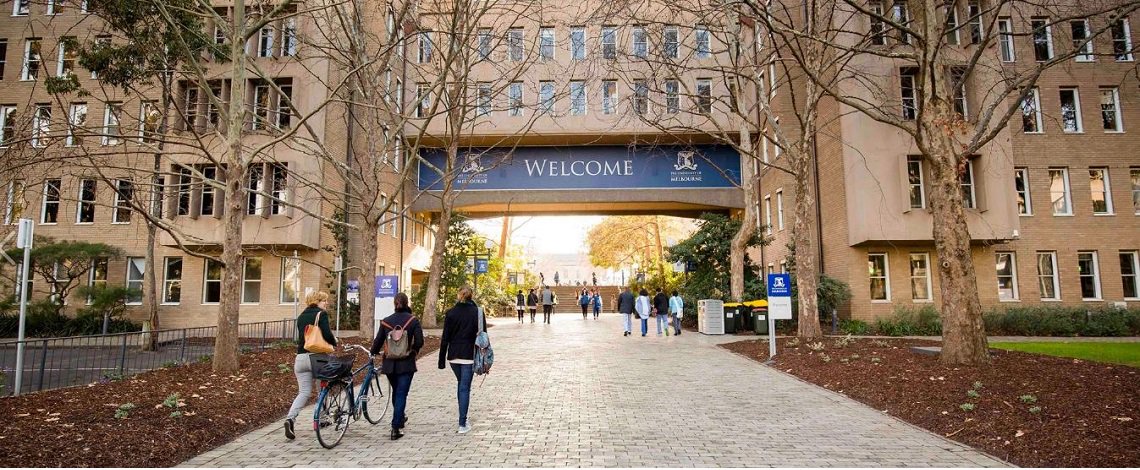
If the reputation is good, if they are "trending", if people outside of the state/country are aware of them, these schools get everything: top students and top lecturers.
If the research that's being performed at the universities is hyped up for some reason, the school, again, gets applications from best students and best researchers. Same goes for every part of the university: its business school, its medical school, its research centre. Marketers and PR professionals have to keep a close eye on the uni's reputation, promote the university, promote recruitment, and interact with future students.
And most of all, they have to know the uni's current reputation, its perceived strengths and weaknesses, and where and how conversations about the university take place. For example, if the uni wants to attract foreign students, it has to see where in the world people already know about it. Surely targeting these countries would be easier than the ones where there's no awareness at all?
In another example, if the uni wants to promote their business school, they have to know what current students are saying about it (no, not in the website videos, but to their friends and followers on Twitter). And if the uni has an obvious competitor (another one in the city or a historical competitor), they have to know how they compare.
This information could give a huge boost to your university's marketing and PR. So:
- Do you know how your school is perceived on social media?
- Do you know who generates more mentions: you or your competitors?
- Do you know where the conversation takes place?
To give you an idea of how this analysis could work, I created an alert in Awario for the "University of Manchester". After monitoring the UoM for a couple of days, here's what I got:
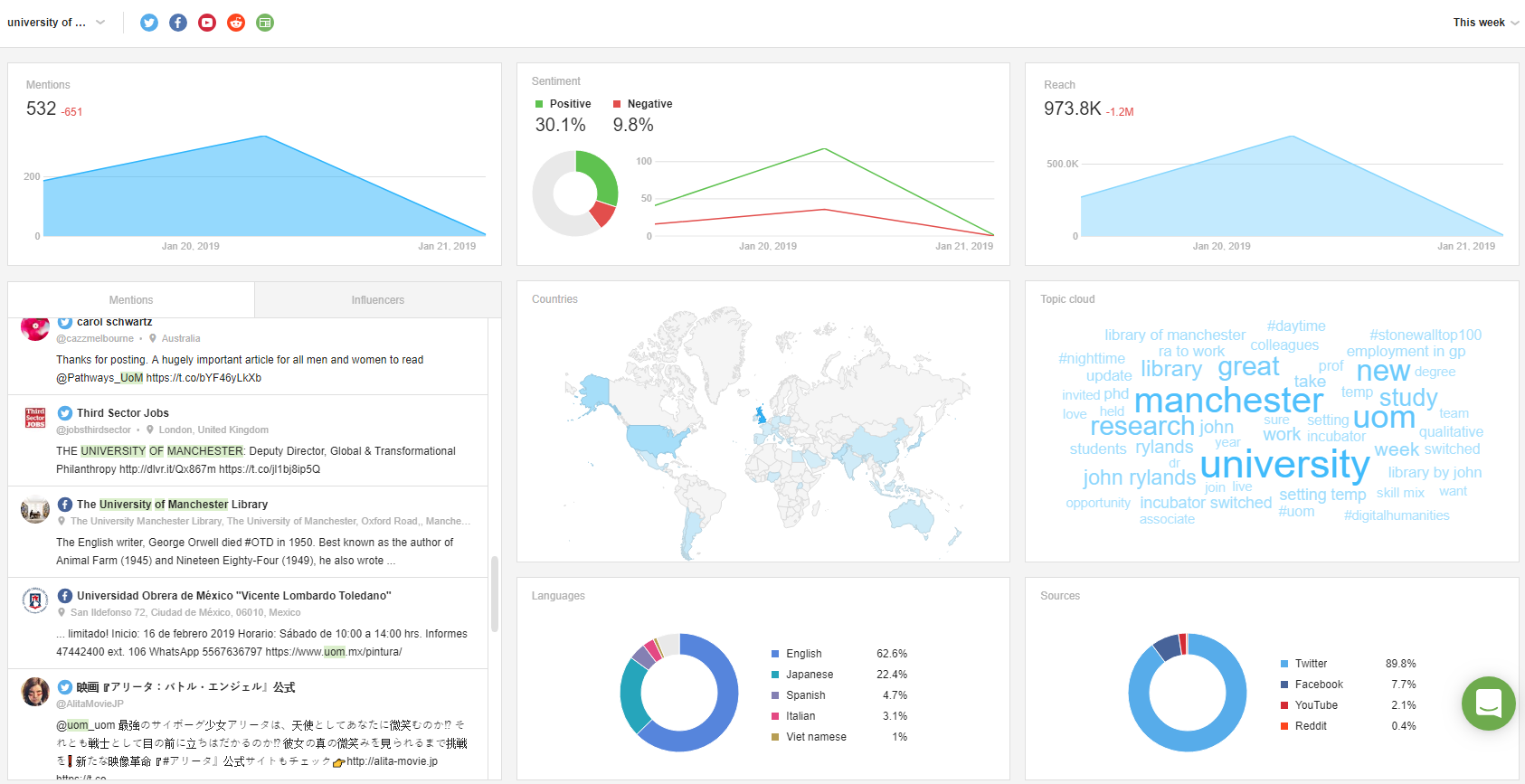
As you can see, the attitude towards the uni is overwhelmingly positive or neutral. Understandably, most mentions are in English and come from the UK, however a large percent is also in Japanese, which is quite surprising. In a Topic Cloud, you can see mentions about the UoM library - it is indeed a great historical place that is worth talking more about when promoting the uni. You can also see frequent mentions of "incubator" - a new innovation centre that seems to get people's attention.
Although the University of Manchester is the biggest uni in the UK, and, therefore, has no real competition in terms of the volume of buzz online, I took another uni - Manchester Metropolitan University - to show you how a comparison would work:
Share of voice:
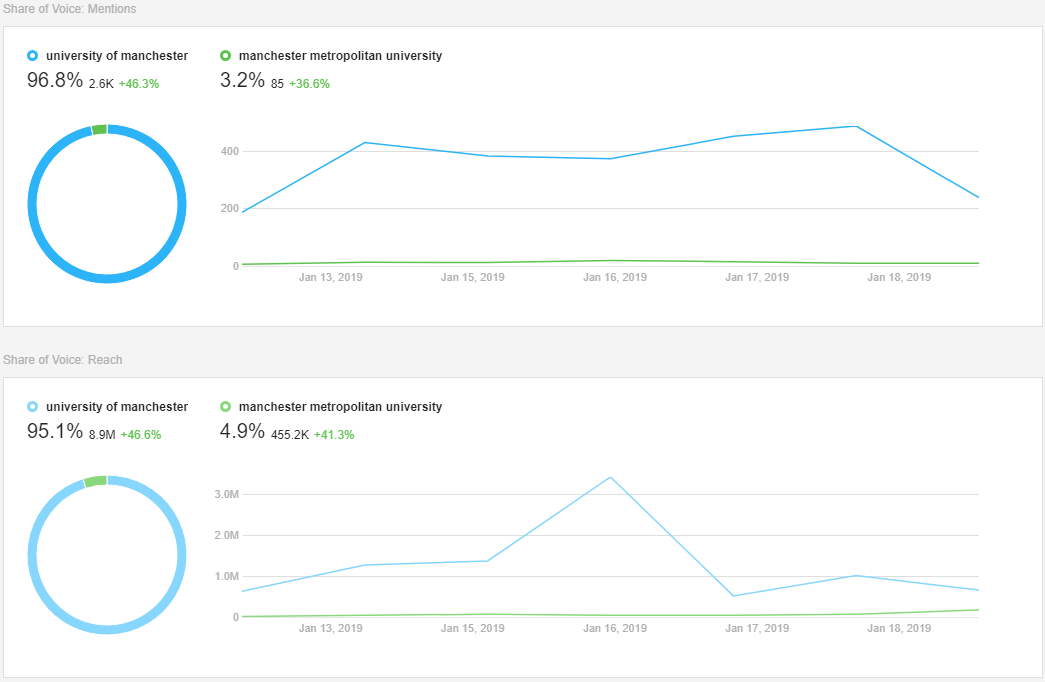
Countries:
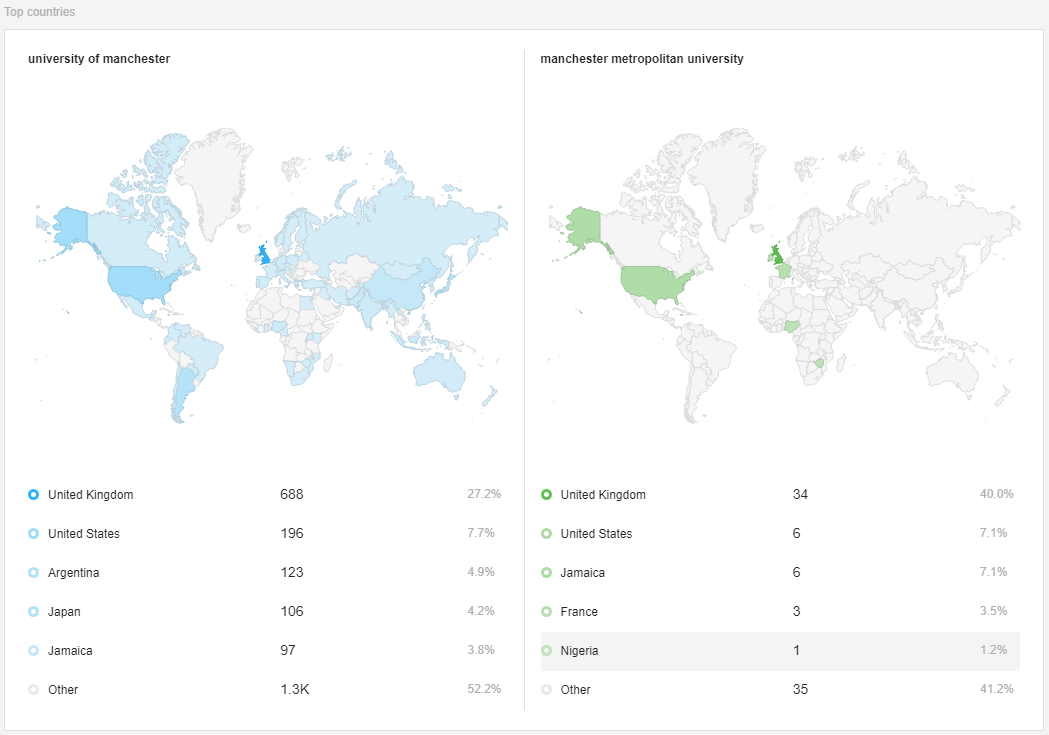
Languages:
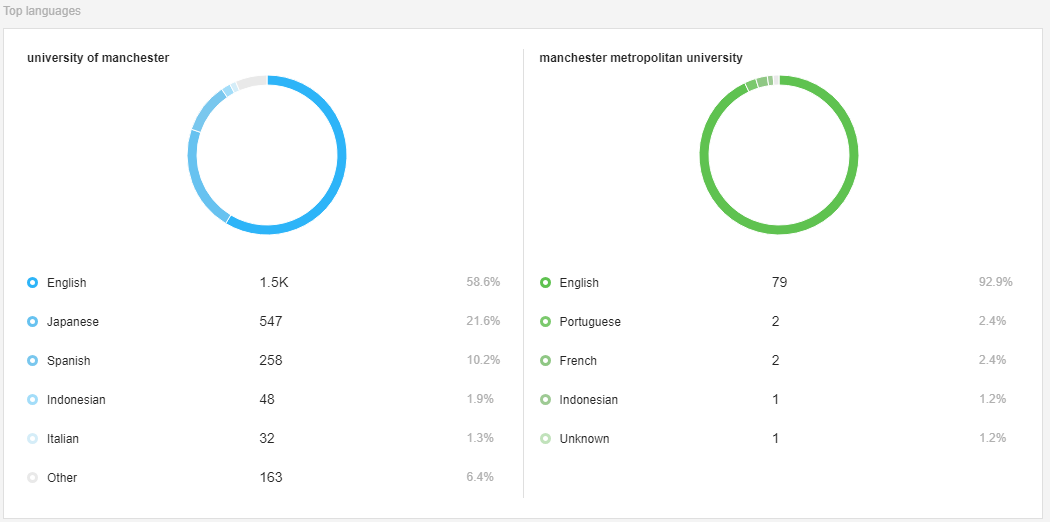
Sentiment:
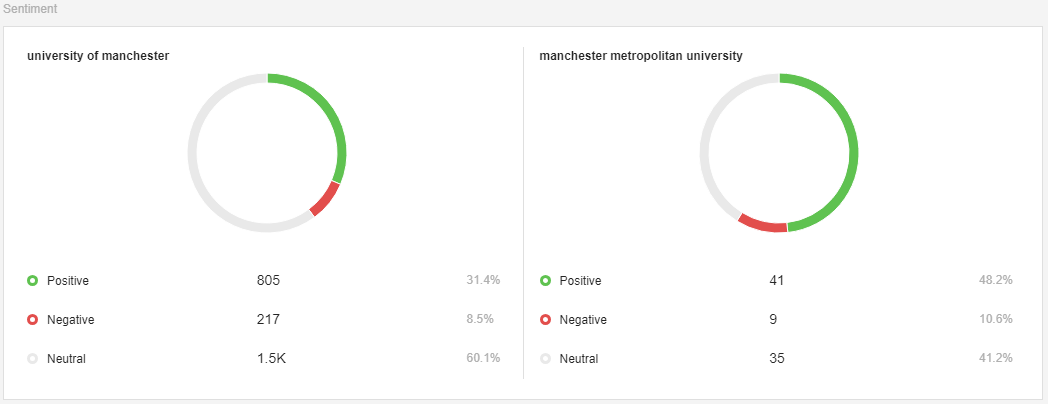
This is an example of what you'll see when starting to monitor your university and your competitor(s). Here's what you do next:
1. Look out for crises and risks.
PR crises happen unexpectedly and can cause serious damage to a university. By monitoring the name of your university online, you'll see if something goes massively wrong - the number of mentions marked with negative sentiment will grow at a much, much higher rate. If you opt to get email notifications, you won't even have to log in to the app to notice that.
Sudden growth in neutral or positive mentions might be also useful to know about. While it could be a huge party planning or a massive realization that it's snowing on campus, it could also be a protest or some other event that you'd better be aware of being aware in advance.
It might also be useful to monitor a whole type of events that could be happening on campus. For example, if you monitor keywords such as "fire", "accident", "threat", "threaten", "abuse", etc. alongside the name of your university, you might notice risks even before the crisis happens. Jump to our Boolean search guide to learn how to make such complicated quieries with Awario.
2. Find exciting user-generated content.
Nothing promotes a university better than students and ex-students do. Listening in on what students say about your uni could open up a whole range of marketing possibilities. Does anyone write a blog about being an overseas student at your uni? Does a semi-famous alumnus mention here and there that they are proud to have gotten a degree from your uni? Is there a videoblog of PhDs talking about their research?

All of these could be used for forming relationships and uni promotion. And these will get you everywhere, because this kind of online buzz is sincere and authentic.
3. Use social media to achieve your goals.
Social media is where everything happens - especially for the age groups that universities target. So if you don't know what exactly you're trying to achieve, social media might seem confusing and overwhelming, especially with all the stats that an analytics tool provides you with. So do set your goals. For example:
If you're concerned that the uni might have some issues you're not aware of, you can look through mentions that are marked negative, and collect the ones that talk about recurring issues, e.g., tuition fees, housing, or labs. You can also respond to these issues straight away.
If recruiting is your goal, you can recruit new applicants by finding conversations about admissions online, such as Twitter chats, and engaging with prospective students.
And so on.
Once you set your social media marketing priorities, the possibilities of social media monitoring will unfold before your eyes.













